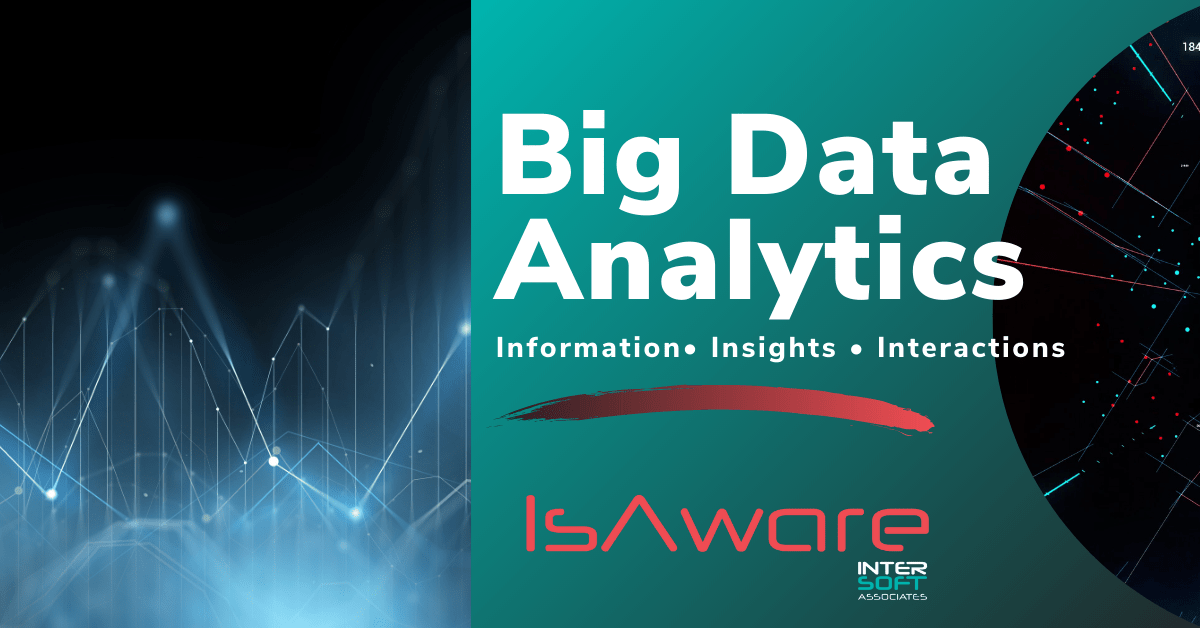Analytics from the data, or information, your company uses, stores and interacts with helps tell a story. History has deeper meaning and future planning can be more specific – and accurate – when leveraging the interactions and insights Big Data provides. Read on to explore how your business can leverage Big Data Analytics to help drive better decision making, visualize and understand key performance indicators and understand why it’s critical to have a broad perspective on data to do more with what you have.
What is Big Data Analytics?
We’ve explored before how Big Data is essentially both historical and real-time, relevant information on trends to manage a business better. Big Data Analytics is using that information, even from different or disparate sources, to better understand, visualize and contextualize those trends. With Big Data Analytics you can make better informed decisions more quickly, realize historical trends more accurately and make forecasts with better predictability.
Big Data and Big Data Analytics help to more confidently understand and answer:
- What is different today than six months ago? Why?
- What patterns are emerging in business with critical dimensions like customer acquisition, sales, deliveries and more?
- What outside factors could be impacting those patterns?
- What other data, or information, is helping to shape trends and patterns?
Leveraging The Data You Have
Every company has data. How valuable an asset is that data is a function of how it is used. A spreadsheet full of customer email addresses is data. When it is used to communicate with customers and nurture them into buying behaviors, that data is more useful.
Smart companies today are intentional about how and what data they are collecting, and why. In addition to an email address, what if you also knew a customer’s favorite color was red, that they enjoy camping, and that they’re geographically located near mountains? This simple illustration demonstrates the value of Big Data Analytics – when data is pulled together, it tells a story. In this case, the story is of a customer who probably won’t respond well to a sales offer to buy a blue surfboard, but might be interested in some new red hiking boots.
Taken to a larger scope, Big Data Analytics helps you identify trends and to manage them. If you want your company to grow by a certain percentage, for instance, Analytics helps you understand how realistic that growth can be, and why. A Profit and Loss statement can show if you’re having a string of profitable quarters. Analytics can help you correlate and contrast those quarters with everything from weather events to website usage to supply chain events that might all be shaping the why behind the numbers. Looking ahead, Analytics can help forecast what might be changing, why, and how your growth goals may be affected – and most importantly, how you can help to shape it..
Analytics, You and Your Customers
Every day we interact with Big Data and experience the impacts of Big Data Analytics. When we’re shopping at Amazon, for instance, and receive recommendations for additional purchases – those recommendations come from the behaviors of millions of other customers with metadata that is in some way similar to yours, distilled into actionable data. The Analytics applied to that data help deliver those recommendations more confidently. Everything from the posts you see on social networks to the articles that are recommended in your favorite news apps or websites to the subject lines you see in commercial emails are all, in some way, often driven by data.
If none of these illustrations are familiar to how your business runs, you are probably minimizing the potential that your data has. This means you are likely not reaching the right customers or prospects with better messaging, relevancy or positioning your business to achieve more success or avoid potential pitfalls. While this is problematic enough, you can and should assume that your competition is doing more with data. Big Data is both a competitive advantage and a tremendously valuable business asset – but it is only as valuable if it is leveraged.
Doing More With Data
You do not need to be a data expert to start doing more with your data and its relationship with Big Data. You do not even need to fully understand what Big Data Analytics are and how they can impact your business. You just need to ask somebody who does.
The right Big Data Consultant can help you dig into your data, better understand its value, and better realize its potential. At InterSoft Associates we help companies realize possibilities they often did not even consider. If you are wondering “could my company be doing more with Big Data?” the answer is absolutely! The smarter question is how could your company be benefitting from Big Data and Big Data Analytics, and how quickly. The answers might surprise you.






